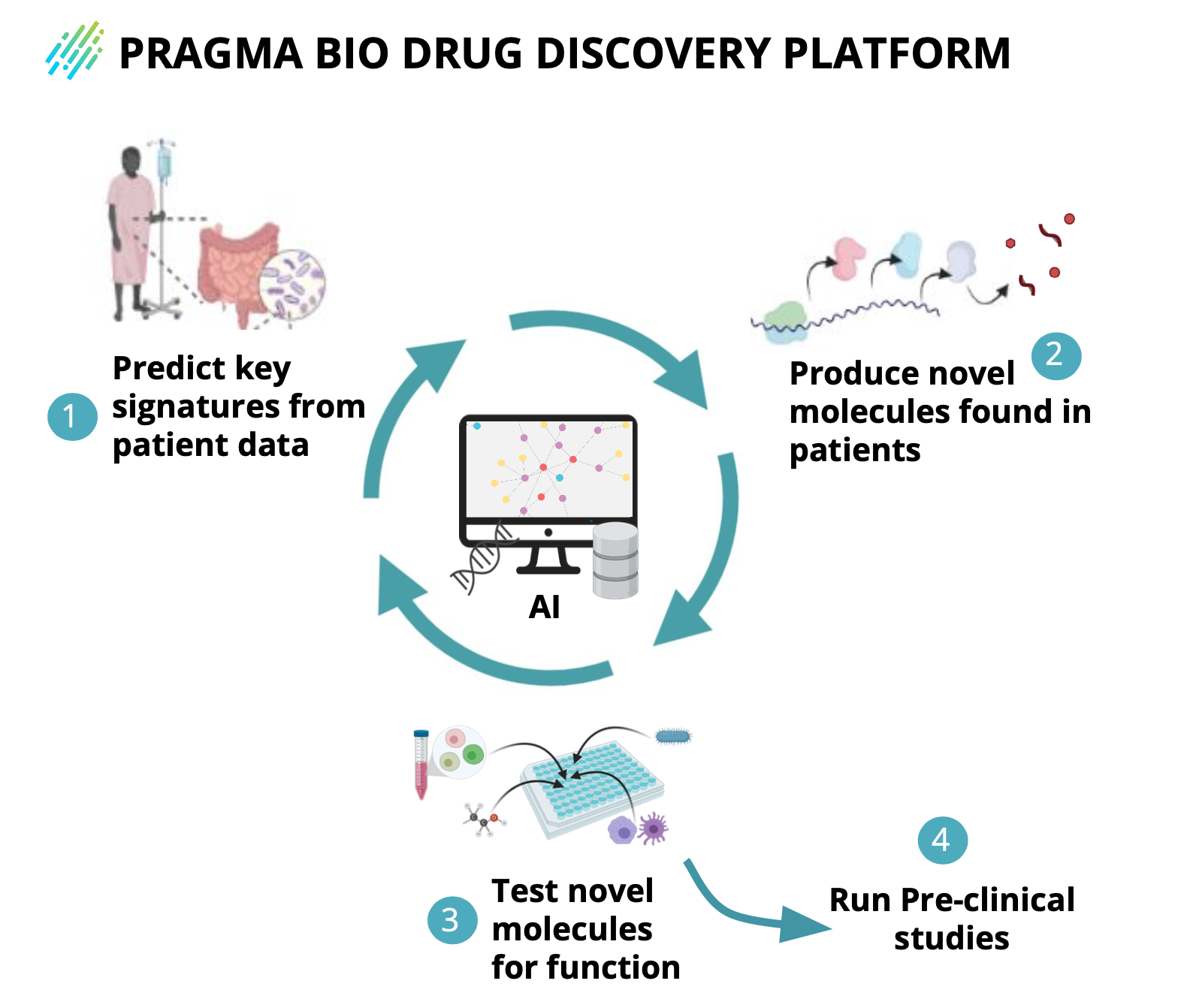The natural world has produced many of our most important medicines, but instead of looking under a leaf or rock for the next big cancer drug, Pragma Bio is searching within the human body — its swarm of resident microbes, to be precise. With its novel approach and a fresh $10 million in funding, the startup hopes to embark on the first part of a 10-year plan.
The company is also assuming a new identity — it formerly raised a $4.5 million seed in 2020 as VastBiome, in case the tech sounds familiar.
In case you’re not aware, the human body is a total zoo. Countless bacteria and other microfauna pervade us, covering every surface inside and out. Most are benign, a handful malign, but many are beneficial in ways we don’t completely understand. For whatever reason, certain microbes being present in the body can correlate with better outcomes in a number of illnesses, including cancers.
“It’s just a good source for interesting molecules,” said Kareem Barghouti, CEO and co-founder of Pragma Bio. “It’s just like soil and plants, like where other products come from, we’re just looking at the body. And toxicity? Probably not, it’s already in there.”
There are two core components of Pragma’s approach to “mining” this gut biome. First is a huge map of the microbes, their genes, the proteins and enzymes and other molecules they produce, and how all those things may relate to disease pathology.
For instance, perhaps you find that in people suffering from a certain cancer, those who respond well to therapy A almost always have a similar microbiome profile: lots of microbe B, which you know produces a lot of molecule C. Might be a good idea to isolate molecule C and see if it can be used to help others use therapy A, right?
It’s rarely so simple, but Pragma is building a gigantic statistical model (with machine learning mixed in, of course) of all these things to identify likely candidates for investigation. The first domain they’re looking at augmenting is immunotherapy in oncology, which seems to have a particularly close relationship with the microbiome.
“We’re building a biological map of immune cells tied to bacteria found in body. But pharma companies don’t want a microbe, they want a molecule — they don’t know how to commercialize a bacterium,” said Barghouti. “The biology tells us, ‘hey, go look in there.’ Then we can start picking and choosing a molecule that might be therapeutic, especially if you fine tune it.”

That’s where Pragma brings its other core component, a much faster method of sequencing and testing the organisms and substances in question. Ordinarily you would identify the microbe you like and then fire up a bioreactor and breed a couple billion of them, then isolate the molecule they produce. This works but is a time-consuming and potentially fragile process.
Pragma Bio’s “self-read” system skips over the billions-of-microbes part, going straight from DNA sequence to expression and a small supply of the desired molecule in a few days. This helps when the pool of molecules to choose from is so large — and the agility makes them a good partner for pharmaceutical companies willing to pay for leads.
These partnerships are needful on Pragma’s side as well, since the next step is where things start getting expensive. Synthesizing enough of a novel molecule more or less unknown to science and testing its effects in vivo isn’t cheap or simple. Fortunately pharma companies do it every day and are happy to trade this resource for a potentially beneficial (and profitable) drug candidate.
“We do have the capital to scale up production, but not for many molecules at the same time,” Barghouti explained. He said they didn’t deem it wise to blow all their operating cash on their first leads, which like any others may lead nowhere — it’s always a gamble in drug development and all you can do is stack the deck in your favor as best you can.
All the same, the new funding will be used for this and other scaling efforts; the $10 million isn’t the end of this fundraise, but it is a nice round number that the company felt was good to get out there along with its new name. That change, by the way, came with a realignment of the company around putting already beneficial molecules to work (it’s a pragmatic approach); the old name suggested more of a gut health kind of thing, so they rebranded.
The investment so far was led by The Venture Collective, joined by Viking Global Investors, Merck Global Health Innovation Fund and CJ Investments in Korea.





























Comment